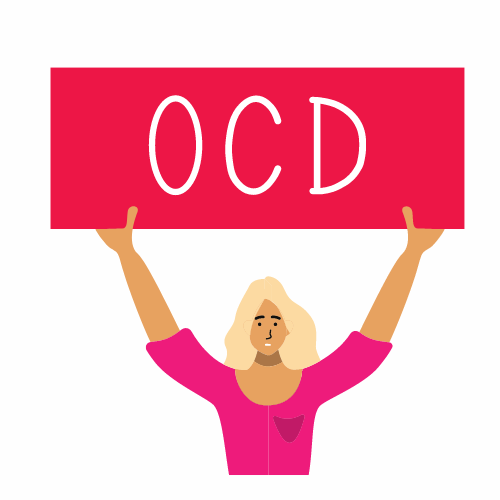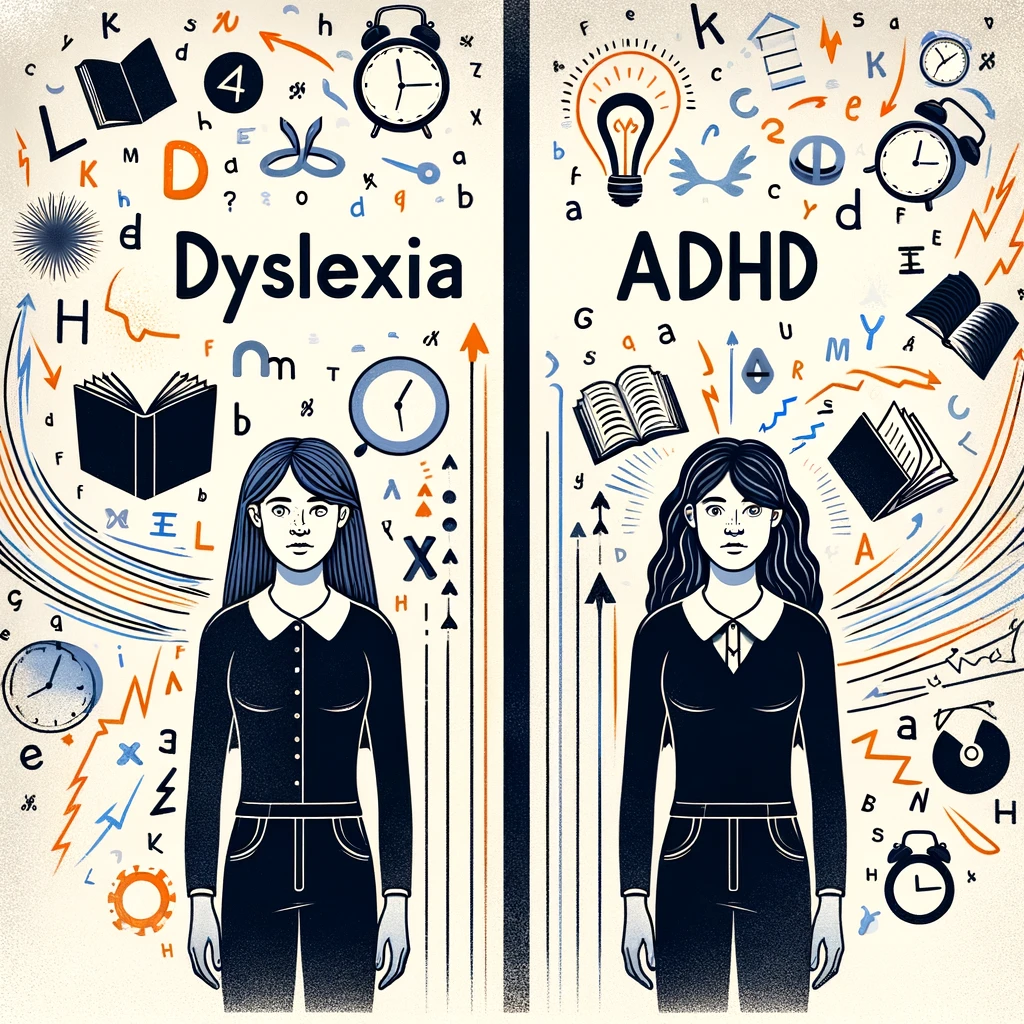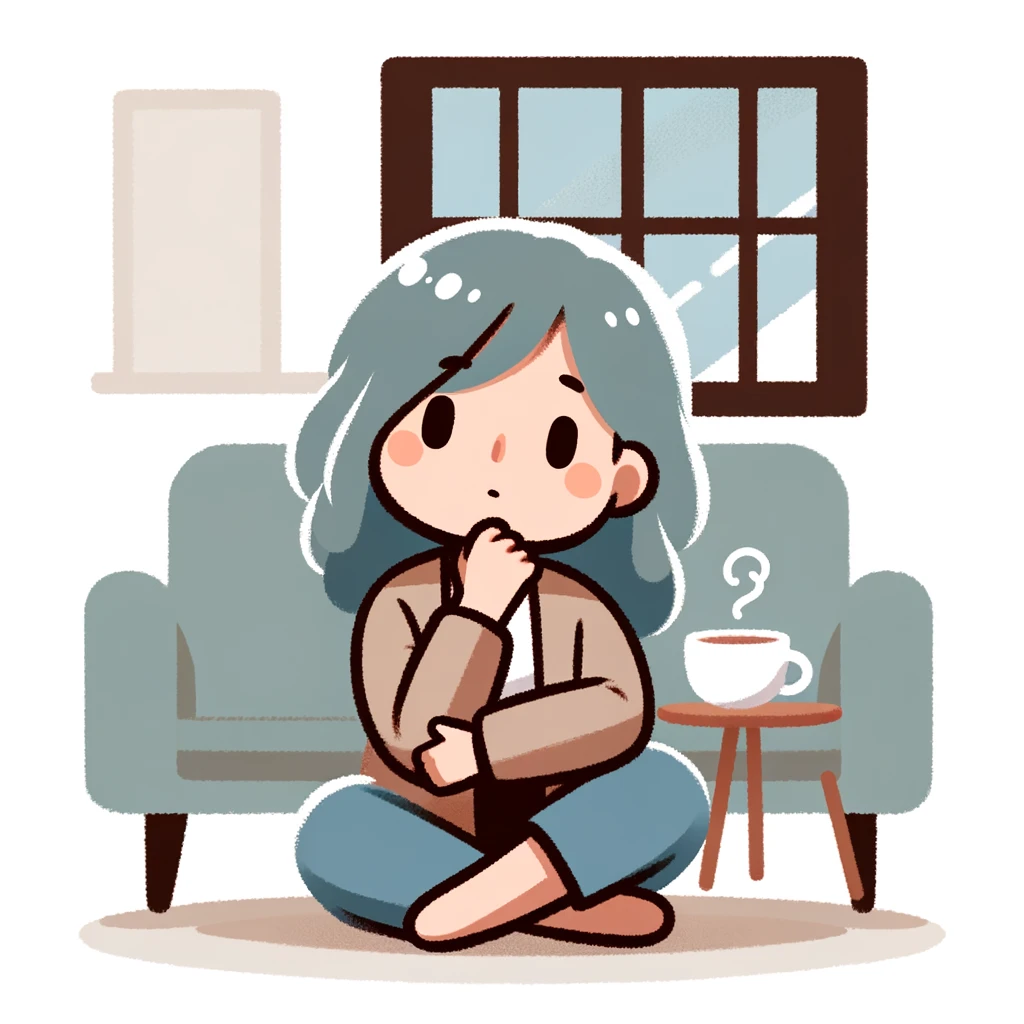
OCD Symptoms
OCD vs. Obsessive-Compulsive Personality Disorder
OCD (Obsessive-Compulsive Disorder) is frequently misunderstood, particularly when it comes to OCD symptoms. People might casually say, "I'm so OCD," when they mean they prefer things neat or orderly. However, true OCD involves distressing and intrusive thoughts (obsessions) and repetitive behaviors (compulsions) that significantly interfere with daily life. It’s essential to distinguish OCD from Obsessive-Compulsive Personality Disorder (OCPD). OCPD involves a preoccupation with rules, perfectionism, and rigidity, but it does not include the debilitating obsessions and compulsions that define OCD symptoms.What is OCD?
Obsessive-Compulsive Disorder (OCD) is a chronic mental health condition where a person experiences uncontrollable, recurring OCD, including obsessive thoughts and compulsive behaviors. OCD severely impacts various aspects of life, such as work, school, and personal relationships.Diagnostic Criteria for OCD Symptoms
According to the DSM-5 (Diagnostic and Statistical Manual of Mental Disorders, 5th Edition), the diagnostic criteria for OCD includes:- Presence of Obsessions, Compulsions, or Both: OCD can fluctuate over time, often worsening during periods of high stress.
- Time-Consuming and Distressful: OCD symptoms must take up more than one hour per day and cause significant distress or impairment in social, occupational, or other important areas of functioning.
- Recognition of Excessive Behavior: Individuals must recognize that their OCD is excessive or unreasonable, except in children.
- Not Better Explained by Another Disorder: OCD symptoms cannot be attributed to the physiological effects of a substance, another medical condition, or another mental disorder.
Defining Obsessions and Compulsions
Obsessions
Obsessions are one of the key OCD symptoms. These are intrusive, unwanted thoughts, images, or impulses that cause significant anxiety or distress. Common themes of obsessions include:- Contamination: Fear of germs, dirt, or illness.
- Aggression: Fear of harming oneself or others.
- Safety: Concerns about catastrophic events like fire or burglary.
- Symmetry and Orderliness: A need for objects to be aligned or arranged in a specific way.
Compulsions
Compulsions are another primary category of OCD symptoms. These are repetitive behaviors or mental acts performed in response to an obsession, often aimed at reducing the anxiety caused by the obsession. Examples include:- Washing and Cleaning: Excessive hand washing, cleaning, or bathing.
- Checking: Repeatedly checking doors, locks, or appliances.
- Counting: Counting objects or actions repeatedly.
- Arranging: Organizing items in a specific, often symmetrical way.
Common OCD Symptoms
OCD varies from person to person but generally falls into two categories: obsessions and compulsions. These symptoms can be distressing and time-consuming, significantly impacting daily life.Types of Obsessions
Obsessions, a core component of OCD , can be categorized into specific types, each associated with particular fears:- Contamination Obsessions: Excessive fear of germs, disease, or environmental contaminants.
- Aggressive Obsessions: Fears of causing harm to oneself or others, often involving violent images or thoughts.
- Health-Related Obsessions: Excessive concern about illness, appearance, or bodily functions.
- Religious or Moral Obsessions: Fear of offending God, excessive concern with morality, or fear of sin.
- Sexual Obsessions: Intrusive thoughts or impulses related to sexual acts or orientation.
- Symmetry and Orderliness Obsessions: A need for symmetry or exactness in objects or arrangements.
Types of Compulsions
Compulsions are actions taken to alleviate the distress caused by obsessions. These OCD symptoms include:- Washing and Cleaning: Ritualistic washing or cleaning to avoid contamination.
- Checking: Repeatedly verifying actions to prevent perceived dangers (e.g., checking locks or appliances).
- Repeating: Performing actions multiple times until they feel "just right."
- Hoarding: Collecting and keeping items to avoid perceived danger or loss.
- Counting and Arranging: Counting objects or arranging them symmetrically.
OCD Symptoms in Children
OCD symptoms can manifest in childhood, with some children showing signs as early as age 7. Boys are more likely to develop OCD before puberty, especially if there is a family history of OCD or related disorders like Tourette's syndrome. Early diagnosis and treatment are crucial, as many children with OCD go undiagnosed and untreated.OCD Statistics
OCD symptoms affect approximately 1-3% of the global population. The World Health Organization ranks OCD among the top 10 most disabling illnesses in terms of lost income and decreased quality of life. OCD symptoms often co-occur with other mental health conditions, such as depression and anxiety.OCDand Co-Occurring Disorders
OCD symptoms frequently coexist with other mental health conditions:- Anxiety Disorders: Many individuals with OCD also suffer from generalized anxiety disorder, panic disorder, or social anxiety disorder.
- Depression: Major depressive disorder is common among those with OCD symptoms.
- ADHD: Attention-deficit/hyperactivity disorder often coexists with OCD symptoms, complicating diagnosis and treatment.
- Schizophrenia: A significant percentage of people with schizophrenia also exhibit OCD symptoms.
Treatment Options for OCD Symptoms
Effective treatment for OCD often involves a combination of therapy and medication. Cognitive-behavioral therapy (CBT), particularly Exposure and Response Prevention (ERP), is the most effective therapeutic approach. ERP helps individuals gradually face their fears and resist the urge to perform compulsions.Exposure and Response Prevention Therapy
ERP is a specific form of CBT designed to treat OCD. It involves exposing individuals to the source of their anxiety without allowing them to engage in compulsions. Over time, this reduces the anxiety associated with obsessions and diminishes compulsive behaviors. Note: ERP should only be conducted under the guidance of a trained therapist and with the patient's consent.Medication for OCD Symptoms
Medications, particularly selective serotonin reuptake inhibitors (SSRIs), are commonly prescribed to help manage OCD s. About 40-60% of patients show a significant reduction in symptoms with medication, though some may require higher doses than those used for depression.Genetics and OCD Symptoms
Research suggests a vital genetic component to OCD. Studies have linked OCD to specific genes, particularly on chromosome 9. Individuals with a first-degree relative who has OCD are five times more likely to develop the disorder.Random Facts about OCD
Here are some intriguing and lesser-known facts about OCD symptoms:- Prevalence in Dermatology: One study found that 20% of patients referred to a dermatology clinic had OCD symptoms along with a related skin condition. This highlights how OCD symptoms can manifest in physical ways, particularly when obsessions are focused on contamination or appearance.
- Sexual Obsessions: Sexual obsessions are more common among OCD symptoms than many realize. These intrusive thoughts can cause significant distress and are often misunderstood by both patients and healthcare providers.
- First Contact with Physicians: Four in five people with OCD symptoms first present to a non-psychiatric physician for their symptoms, often with complaints related to anxiety, depression, or other physical conditions, before receiving a proper OCD diagnosis.
- Musical Hallucinations: People with OCD symptoms are more likely to experience musical hallucinations, a rare phenomenon where they hear music that isn’t actually playing. This is more common in OCD patients than in the general population.
FAQs
1. Can OCD develop later in life? Yes, while OCD symptoms often begin in childhood or adolescence, they can also develop in adulthood. 2. Is OCD curable? OCD is not curable, but with proper treatment, individuals can manage symptoms and lead fulfilling lives. 3. How is OCD different from being a perfectionist? Perfectionism is a personality trait, whereas OCD symptoms are part of a mental health disorder characterized by debilitating obsessions and compulsions. 4. Can children outgrow OCD? Children may not outgrow OCD , but early intervention can significantly reduce symptoms and improve outcomes. 5. Are there natural remedies for OCD? While some natural approaches may help with anxiety, they should not replace professional treatment for OCD.Resources
Check out NOCD and IOCD for more help
See other pages on ocd on this site.
References
- American Psychiatric Association. (2000). Diagnostic and statistical manual of mental disorders (4th ed., text rev.). Washington, DC: Author.
- Arehart-Treichel, J. (2006). Scientists home in on gene linked to OCD. Psychiatric News, 41, 26-32.
- Haq, I. U., Foote, K. D., Goodman, W. G., Wu, S. S., Sudhyadhom, A., Ricciuti, N., Siddiqui, M. S., Bowers, D., Jacobson, C. E., Ward, H., & Okun, M. S. (2010). Smile and laughter induction and intraoperative predictors of response to deep brain stimulation for obsessive-compulsive disorder. NeuroImage. Advance online publication. https://doi.org/10.1016/j.neuroimage.2010.03.005
- Hermesh, H., Konas, S., Shiloh, R., Dar, R., Marom, S., Weizman, A., & Gross-Isseroff, R. (2004). Musical hallucinations: Prevalence in psychotic and nonpsychotic outpatients. Journal of Clinical Psychiatry, 65(2), 191-197.
- Radua, J., van den Heuvel, O. A., Surguladze, S., & Mataix-Cols, D. (2010). Meta-analytical comparison of voxel-based morphometry studies in obsessive-compulsive disorder vs other anxiety disorders. Archives of General Psychiatry, 67(7), 701-711. https://doi.org/10.1001/archgenpsychiatry.2010.70
- Kaplan, A., & Hollander, E. (2004). A review of pharmacologic treatments for obsessive-compulsive disorder. Focus, 2(3), 454-461.
- Kobak, K. A., Greist, J. H., Jefferson, J. W., Katzelnick, D. J., & Henk, H. J. (2004). Behavioral versus pharmacological treatments of obsessive-compulsive disorder: A meta-analysis. Focus, 2(3), 462-474.
- Kruger, S., Braunig, P., Hoffler, J., Shugar, G., Borner, I., & Langkrar, J. (2000). Prevalence of obsessive-compulsive disorder in schizophrenia and significance of motor symptoms. Journal of Neuropsychiatry and Clinical Neurosciences, 12(1), 16-24.
- Lamberg, L. (2007). OCD patients may seek help from dermatologists. Psychiatric News, 42, 18-27.
- Grant, J. E., Pinto, A., Gunnip, M., Mancebo, M. C., Eisen, J. L., & Rasmussen, S. A. (2006). Sexual obsessions and clinical correlates in adults with obsessive-compulsive disorder. Comprehensive Psychiatry, 47(5), 325-329. https://doi.org/10.1016/j.comppsych.2006.03.002
- March, J. S. (1998). OCD in children and adolescents: A cognitive-behavioral treatment manual. New York: Guilford Press.
- Menzies, L., Williams, G. B., Chamberlain, S. R., Ooi, C., Fineberg, N., Suckling, J., Sahakian, B. J., Robbins, T. W., & Bullmore, E. T. (2008). White matter abnormalities in patients with obsessive-compulsive disorder and their first-degree relatives. American Journal of Psychiatry, 165(10), 1308-1315. https://doi.org/10.1176/appi.ajp.2008.07071006
- Piacentini, P. A. (2009, October 10). Treating children and adolescents with OCD [PowerPoint lecture]. BTTI Training, San Diego, CA.
- Saxena, S. (2009, October 10). Psychopharmacology of obsessive-compulsive disorder [PowerPoint lecture]. BTII Conference, San Diego, CA.
- The Pediatric OCD Treatment Study (POTS) Team. (2004). Cognitive-behavior therapy, sertraline, and their combination for children and adolescents with obsessive-compulsive disorder: The Pediatric OCD Treatment Study (POTS) randomized controlled trial. JAMA, 292(16), 1969-1976. https://doi.org/10.1001/jama.292.16.1969
Medical Disclaimer
The information on this website is for informational purposes only and is not a substitute for professional medical advice, diagnosis, or treatment. Always consult a healthcare provider with any questions or concerns. Reliance on any information provided here is solely at your own risk.






